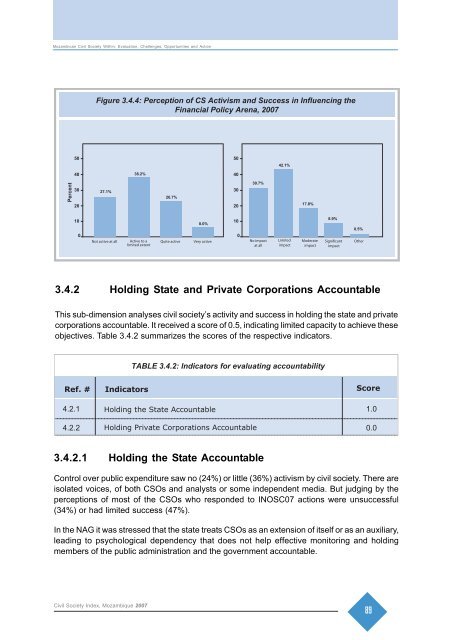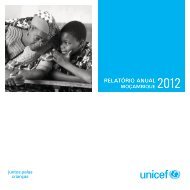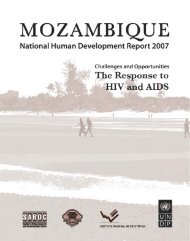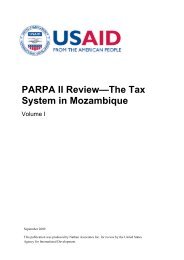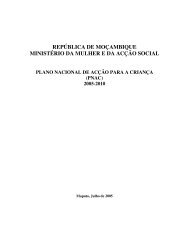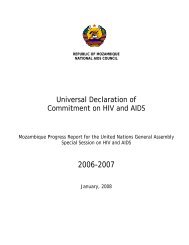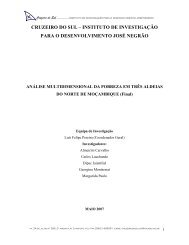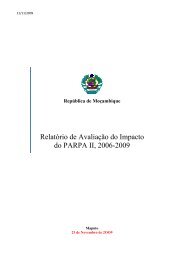Mozambican Civil Society Within: - UNICEF Mozambique - Home page
Mozambican Civil Society Within: - UNICEF Mozambique - Home page
Mozambican Civil Society Within: - UNICEF Mozambique - Home page
Create successful ePaper yourself
Turn your PDF publications into a flip-book with our unique Google optimized e-Paper software.
<strong>Mozambican</strong> <strong>Civil</strong> <strong>Society</strong> <strong>Within</strong>: Evaluation, Challenges, Opportunities and Action<br />
Figure 3.4.4: Perception of CS Activism and Success in Influencing the<br />
Financial Policy Arena, 2007<br />
50<br />
50<br />
42.1%<br />
40<br />
38.2%<br />
40<br />
Percent<br />
30<br />
20<br />
27.1%<br />
26.7%<br />
30<br />
20<br />
30.7%<br />
17.8%<br />
10<br />
0<br />
Not active at all<br />
Active to a<br />
limited extent<br />
8.0%<br />
0<br />
Quite active Very active No impact<br />
at all<br />
10<br />
Limited<br />
impact<br />
Moderate<br />
impact<br />
8.9%<br />
Significant<br />
impact<br />
0.5%<br />
Other<br />
3.4.2 Holding State and Private Corporations Accountable<br />
This sub-dimension analyses civil society’s activity and success in holding the state and private<br />
corporations accountable. It received a score of 0.5, indicating limited capacity to achieve these<br />
objectives. Table 3.4.2 summarizes the scores of the respective indicators.<br />
TABLE 3.4.2: Indicators for evaluating accountability<br />
Ref. # Indicators Score<br />
4.2.1 Holding the State Accountable<br />
1.0<br />
4.2.2 Holding Private Corporations Accountable<br />
0.0<br />
3.4.2.1 Holding the State Accountable<br />
Control over public expenditure saw no (24%) or little (36%) activism by civil society. There are<br />
isolated voices, of both CSOs and analysts or some independent media. But judging by the<br />
perceptions of most of the CSOs who responded to INOSC07 actions were unsuccessful<br />
(34%) or had limited success (47%).<br />
In the NAG it was stressed that the state treats CSOs as an extension of itself or as an auxiliary,<br />
leading to psychological dependency that does not help effective monitoring and holding<br />
members of the public administration and the government accountable.<br />
<strong>Civil</strong> <strong>Society</strong> Index, <strong>Mozambique</strong> 2007<br />
89


